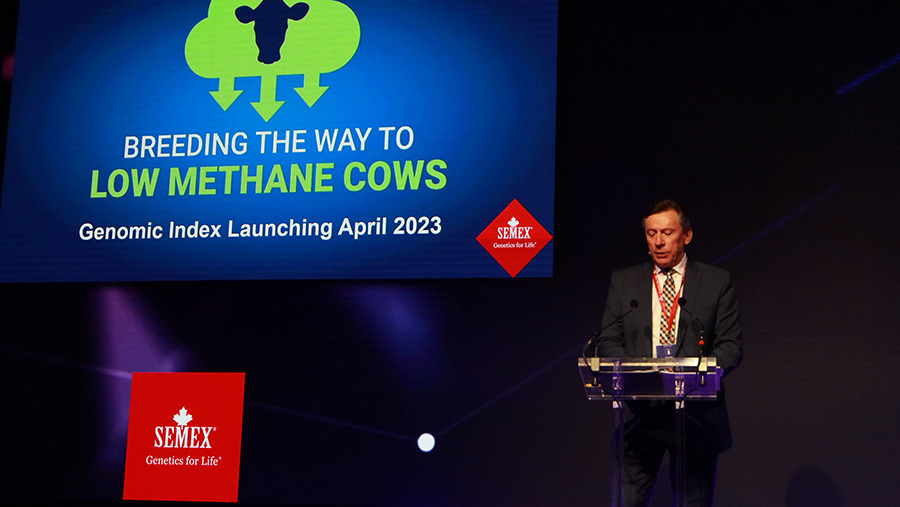Semex introducing new methane index in its genetics

Semex chief executive Paul Larmer © Semex
Advances in cattle genetics could lead to a 20-30% reduction in methane emissions by 2050, says one of the world’s largest breeding companies.
Canadian-based Semex announced at its international conference on Glasgow on Tuesday (17 January) that it is launching a new genomic test, in April, that can assess methane emissions in cattle.
This will allow it to select for low-emission animals and make a valuable contribution to mitigating climate change.
See also: Why genetics can play bigger role in breeding out lameness
Drew Sloan, Semex vice-president of corporate development, said: “In many countries, the proverbial finger is pointed at agriculture, specifically cattle, as a culprit of excess emissions, with many nations adopting laws targeting net-zero greenhouse gas emissions by 2050.
“This is another tool to bring down emissions on farm, which will contribute to reaching that goal.”
Genetic traits
According to the company, a new genetic trait has been found with an 85% genetic correlation between collected and mid-infrared (MIR) predicted methane.
This trait also has 23% heritability, 70-80% reliability, and no impact on yields or fat and protein levels.
The genetic gains are cumulative and permanent, according to Semex Alliance chief executive Paul Larmer.
Semex worked alongside Canadian producer-owned business Lactanet and the University of Guelph studying MIR spectroscopy records and feed efficiency records to find a genetic solution to reducing methane emissions.
Advances in genetics are already able to help improve feed efficiency, achieve higher yields for each cow, reduce antibiotics use, and help to breed healthier cows.
About 19-24% of methane emissions made by cattle are linked to an individual animal’s genetics, while 7-13% of emissions can be explained by ruminal microbiota, according to studies by Norway’s Department of Breeding and Genetics and Lanzhou University.
‘Ground-breaking’
Stuart Roberts, former NFU deputy president, farmer and conference chairman, said: “Society absolutely expects us as an industry to play our part in climate change.”
“I think it is genuinely ground-breaking that we have now got a genetic tool that can significantly help us on that journey.”
